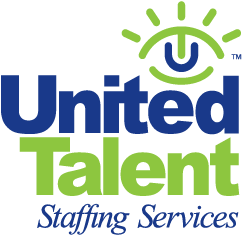Culture defines the personality of a company. It encompasses a variety of elements including mission, values, goals, attitudes and underlying assumptions. When hiring a new employee, it is important for an organization to consider if an individual’s expectations and behaviors are congruent with the current work environment. In his studies, Brian Kropp, a managing director at Corporate Executive Board, found “that almost half of an employee’s success in the first 18 months on the job can be attributed to how the employee fits in with others in the organization while the rest of his success depends on whether he can do the job.” (Forbes, 2011).
Obviously, there is no concrete way to measure for culture fit. Finding the right qualifications and the right personality is easier said than done. However, there are some key indicators that an individual might not be the best choice for your organization.
Lack of Passion
Your company’s ideal hire should be excited to work in your industry and for your organization. But first, they need to know about you. If it is obvious through application materials or during the interview process that a candidate did not bother to research your company, the odds are not in your favor. Also, be wary of individuals who are looking to use a job as a stepping stone or lateral move. This might be an indicator that their interests do not lie with your corporation. Finally, during the interview process, observe a candidate’s body language and non-verbal communication. It is difficult to fake enthusiasm
Obvious Contradictions
Before beginning the recruiting process, your company should define your ideal hire. Use a well-written, detailed and specific job description that includes both skills and cultural characteristics to weed out poorly suited applicants. Be aware that those who are not good fits still will apply, so watch closely for inconsistencies. With you “unnegotiable” or “must-have” qualities in mind, make sure what your candidate says matches what your candidate displays. For example, if your business model depends on collaboration and teamwork, and an individual gives examples of projects they successfully completed independently or alone, this could be a red flag.
No Spark
The intangible connection that a potential employee may or may not have with a company and coworkers is the most difficult to quantify. It may be there or not, and it is nearly impossible to express the exact reasons why. To further complicate matters, first impressions can be erroneous and deceptive. To ensure a variety of input and opinions and to reduce individual biases, plan to interview by committee. Ask everyone involved to make observations about a potential hire’s overall eligibility and fit. Pay special attention to strong objections and enthusiastic votes of confidence.
Are you looking for the right people for your organization? At United Talent Staffing Services, our professional recruiters are trained to identify talented and dependable candidates. We provide quality staffing for clerical, industrial, medical and executive placements throughout West Virginia. Let us help you Find the Perfect Employee today!


